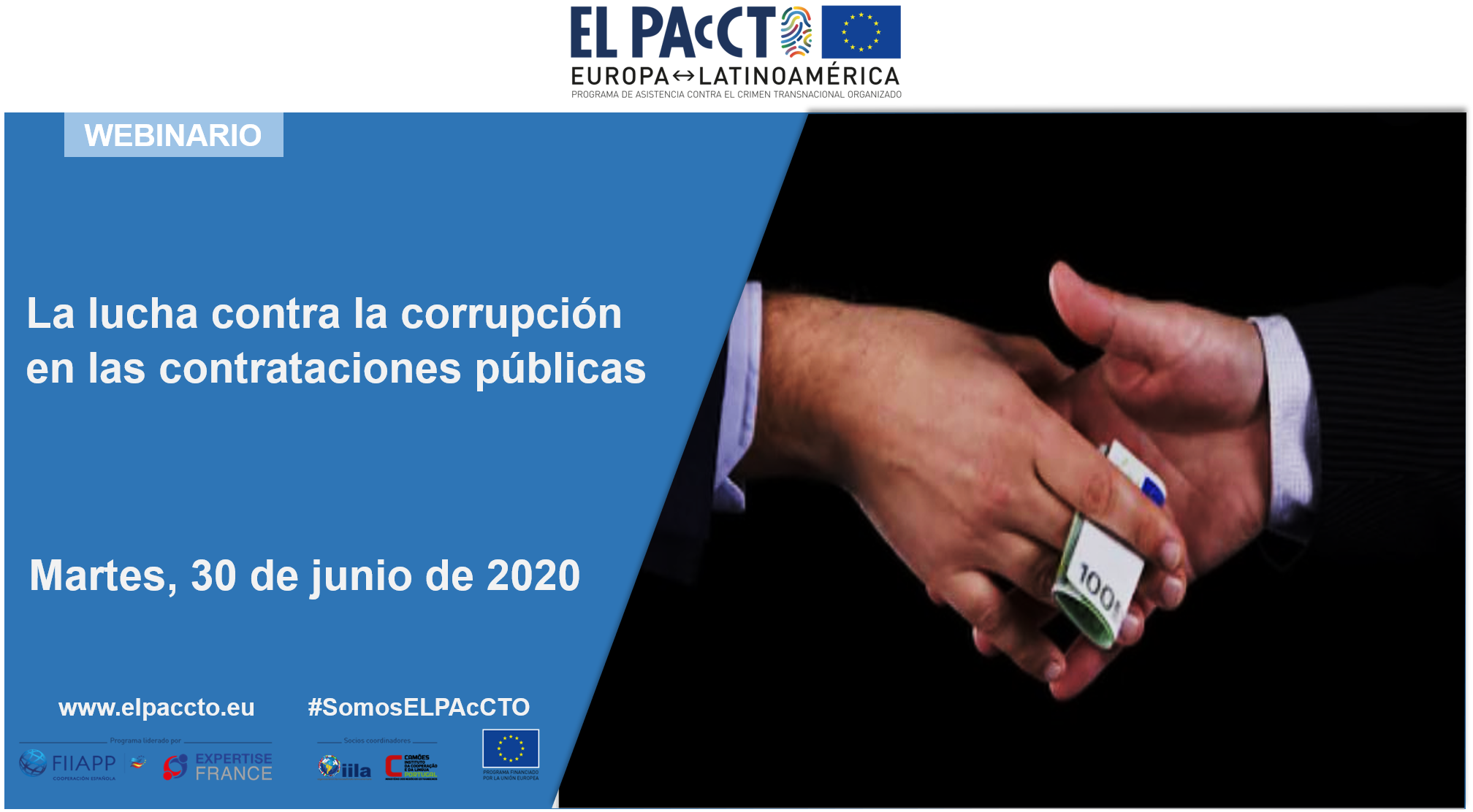More than 200 participants from 17 Latin American and EU countries participated in a webinar organised by EL PAcCTO to analyse corruption in public procurement processes . The webinar was organised during a health crisis that has necessitated orders for medical supplies, some of which have led to corruption cases that are already under investigation. It is, therefore, a highly important current issue that has attracted the interest of prosecutors and police from thirteen Latin American countries.
During the webinar, Eugenia Moreno, team leader of the Investigations and Operations Directorate at the European Anti-Fraud Office (OLAF), Izadora Zubek, coordinator of International Affairs with the French Anticorruption Agency, (AFA), Fernando Sánchez Magdalena, commander-in- chief of the Crimes against the Administration Group in the Economic Crime and Anti-Corruption Department of the Spanish UCO, Barbara Sargenti, public prosecutor with the Italian Anti-Mafia Prosecutor’s Office and Bruno Calabrich, public prosecutor at the Brazilian Public Ministry participated as experts, in that order.
The OLAF representative said that there is a Civil Service Statute that governs procurement processes. European institutions are not permitted to receive gifts worth more than a certain amount and “European officials must disclose all gifts. Recipients can keep gifts worth less than 50 euros. More valuable gifts must be rejected or kept by the institution”.
The AFA coordinator presented a guide with eight main recommendations, including a political commitment to preventing corruption, internal control and the importance of civil servant whistle blowing.
The commander-in- chief with the UCO in Spain, stressed that, unlike other crimes, when a report of corruption is received, “the case is analysed for veracity and scope.”
“Procurement rules were relaxed during the pandemic”
The prosecutor from the Italian Anti-Mafia Prosecutor’s Office, Barbara Sargenti, listed the sectors most seriously affected by corruption: construction, transport, infrastructure and storage.
The prosecutor acknowledged that during the pandemic in Italy, efforts have been stepped up in anticipation of an increase in cases of corruption in connection with purchases of medical equipment. Over the months, “procurement rules were relaxed because of medical emergencies and officials called upon well-known businesspeople who offered direct and indirect sales of masks . Many of them wanted advance payment, something not permitted in public procurement. The role played by of these civil servants in the purchasing processes needs examination”, concluded Sargenti.
The prosecutor with the Federal Public Ministry, Bruno Calabrich, talked about Brazil, saying that “since 2013, award-winningcollaboration has led to more investigations into corruption cases. The Lava Jato case used collaboration in many of its investigations”.
The cordinator with the EL PAcCTO prison system component, Giovanni Tartaglia, ended the webinar stressing that:
- Transnational cooperation is the only way to address new challenges such as corruption in public procurement . For example, in the health sector. International cooperation to share systems, experiences and to strengthen our States.
- Prevention is important and must be on an equal footing with criminal prosecution.
- Private sector participation is essential in order to develop common strategies and public policies against corruption.
- It is important to strengthen judicial and police cooperation in this area and to develop special investigative techniques.
This first seminar on the fight against corruption has enabled EL PAcCTO to start a conversation with several Latin American countries on this issue, which will be addressed in greater depth in the coming months.
